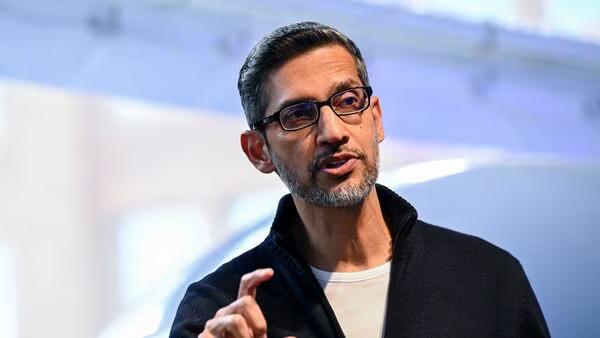June 2025 | Mountain View, CA – As artificial intelligence continues to reshape industries, many have begun asking a fundamental question: Can AI replace human coders? According to Google CEO Sundar Pichai, the answer is a clear “not yet.”
In a recent interview, Pichai addressed the growing capabilities of AI in the programming world. While acknowledging the impressive advances made by large language models and coding assistants, he emphasized that human developers remain irreplaceable—especially when it comes to creativity, contextual judgment, and system-level thinking.
🤖 AI Is a Tool, Not a Replacement
Pichai praised AI tools such as Google’s Gemini, GitHub Copilot, and others for their ability to:
- Accelerate code writing,
- Generate boilerplate functions,
- Assist with debugging,
- And support new learners in understanding complex codebases.
“AI is already transforming how developers work. But it’s important to understand that it’s a tool—a very powerful one—not a substitute for human reasoning.”
– Sundar Pichai
🧠 Why Human Coders Still Matter
According to Pichai, software engineering is not just about writing code—it’s about understanding real-world problems and architecting scalable, secure, and ethical solutions. Here are some areas where humans still lead:
1. Problem-Solving and Critical Thinking
AI can suggest solutions, but it struggles with innovation and nuanced decision-making—skills developers use daily when solving real-world problems.
2. System Design and Architecture
Building robust systems requires a deep understanding of technical trade-offs, scalability, and user behavior. This level of abstraction is still far beyond what AI can do.
3. Security, Ethics, and Privacy
From ensuring data protection to handling edge cases responsibly, developers are expected to make ethical decisions that AI cannot be trusted with autonomously.
4. Interpersonal and Cross-Functional Collaboration
Software development is often collaborative. Coders must work with product managers, designers, and stakeholders—skills that go far beyond the capabilities of an AI model.
⚙️ Augmented Coding: The New Normal
Pichai envisions a future not of AI replacing developers, but one where AI empowers them. In this “augmented coding” landscape:
- Developers use AI to handle repetitive or time-consuming tasks.
- Focus shifts to solving business problems, improving user experience, and innovating.
- Coding becomes faster, but human judgment remains central.
“The best engineers will be those who learn how to work with AI—not compete against it.”
– Sundar Pichai
📌 Final Thoughts
As AI tools grow more sophisticated, fears of job displacement in tech continue to circulate. But Sundar Pichai’s perspective provides reassurance and clarity: the human element in coding is still crucial.
AI can write code, but it can’t replicate intuition, empathy, accountability, or deep domain understanding—at least, not yet.



